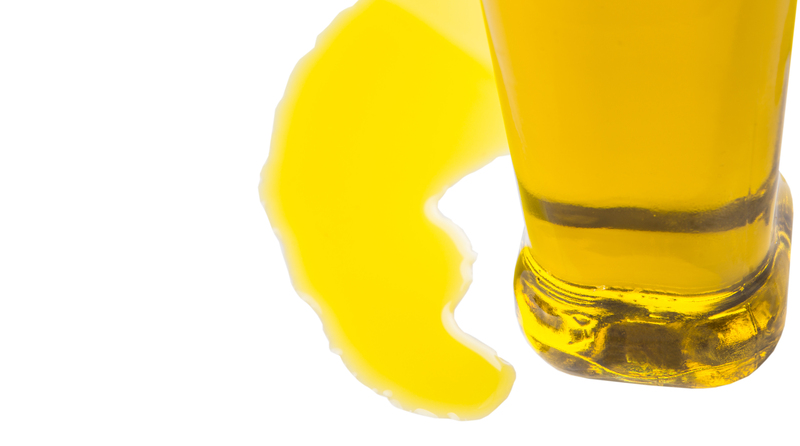Refresh Your Interiors with Effective Pet Odor Solutions
Posted on 02/07/2025
Refresh Your Interiors with Effective Pet Odor Solutions
Are you searching for practical ways to banish persistent pet odors from your home? Living with pets is rewarding, yet inevitable scents from your furry friends may linger and affect the overall ambiance. This comprehensive guide will help you refresh your interiors with a diverse range of effective pet odor solutions. Discover everything from preventative measures to advanced removal methods, so you can enjoy a clean, fresh, and inviting home.
Understanding the Sources of Pet Odor
Before tackling pet odors in your home, it's crucial to identify their origins. Different pets create different scents, and understanding these sources is the first step in choosing the right solution.
- Urine Accidents: Frequent among young or elderly pets, urine is one of the most persistent sources of bad odor.
- Pet Dander: Tiny flakes of skin shed by cats, dogs, and small mammals can trap smells and trigger allergens.
- Wet Fur: Dogs and some cats may have a distinct "wet dog" smell after being outside or after baths.
- Unwashed Bedding and Toys: Fabrics and plush items harbor oils and scents from pets over time.
- Litter Boxes and Cages: Improperly maintained enclosures for cats, rabbits, hamsters, or birds can be strong sources of odors.

Essential Pet Odor Removal Tips for Fresh Interiors
Below, we detail proven strategies to eliminate pet smells and help you refresh your interiors for a healthier, more pleasant environment.
1. Adopt a Rigorous Cleaning Schedule
Consistency is key for odor control. Regular cleaning decreases odors before they build up. Some key actions include:
- Vacuum carpets and rugs: Use a high-efficiency vacuum with a HEPA filter to remove pet dander, hair, and embedded particles.
- Mop hard floors: Mop weekly with a gentle, pet-safe floor cleaner to lift smells.
- Wash pet bedding: Launder all pet beds, blankets, and toys at least once a week using fragrance-free detergent.
- Clean furniture and upholstery: Treat couches, pillows, and curtains with fabric-safe cleaners and vacuum attachments.
- Regularly wash collars and leashes: These often-overlooked accessories can harbor significant odors.
2. Tackle Urine and Accident Spots Immediately
Immediate action is essential when your pet has an accident. The longer urine or messes sit, the more difficult it is to remove their scent fully. Follow these steps:
- Blot up as much as you can with paper towels, rather than rubbing, to prevent spreading.
- Apply an enzymatic cleaner to break down the odor-causing proteins. Enzyme-based formulas are specifically designed for pet odor removal in fabrics and on floors.
- If the stain persists, consider professional carpet cleaning for deep removal.
Tip: Avoid using steam cleaners on urine spots, as heat can set the odor and stain.
3. Use Odor Neutralizers and Air Purifiers
Odor neutralizers offer ongoing pet odor management between cleanings. Options include:
- Activated charcoal bags: These naturally absorb and trap odors from the air and surfaces.
- Baking soda: Sprinkle over carpets before vacuuming to capture lingering scents.
- HEPA air purifiers: These devices filter dander and particles, improving indoor air quality and freshness.
- Pet-friendly sprays: Use non-toxic sprays designed to combat odors rather than just masking them.
Remember: Always choose non-toxic solutions that are safe for pets, as some commercial air fresheners may include harmful chemicals.
4. Focus on Litter Boxes and Pet Cages
Cats, rabbits, birds, and other caged pets can contribute significantly to home odors. Keep their enclosures under control with these tips:
- Scoop daily: Remove waste from litter boxes or cage trays every day.
- Wash weekly: Rinse the entire box or cage with gentle soap and water weekly. Avoid strong chemicals that could deter your pet.
- Use odor-controlling litter: Many modern litters are formulated to neutralize smells without artificial fragrances.
- Change bedding regularly: For small animals, replace straw, wood shavings, or paper bedding often.
5. Groom Your Pets Regularly
Routine pet care is foundational for a fresher-smelling home. Healthy, clean pets produce less odor naturally. Include the following in your regular grooming routine:
- Bathing: Use species-appropriate shampoos every 1-3 months, or more frequently for especially smelly pets.
- Brushing: Brush out loose fur and dander to minimize shedding and odor retention.
- Cleaning ears and teeth: Odors can also originate from poor dental or ear hygiene.
- Nail trims: Keeping nails short prevents mud and waste from collecting underneath.
6. Deep Clean Problem Areas
For stubborn or multi-year pet smells embedded in carpets, walls, or floors, try more serious interventions:
- Steam cleaning: Hire a professional service or use a pet-safe steam cleaner for deep carpet and upholstery cleaning (avoid on old urine stains).
- Seal and repaint walls or floors: If the odor has penetrated porous surfaces, it may be necessary to seal with a primer designed to block odors, then repaint.
- Replace padding or subfloor: In severe cases, replacing carpet padding or even sections of subfloor may be the only way to fully eliminate entrenched pet smells.
Long-Term Prevention of Pet Odors
After you successfully refresh your interiors with pet odor solutions, maintain freshness with a few preventive strategies:
- Establish pet-friendly zones: Limit where pets are allowed within your home. This concentrates cleaning efforts and preserves low-odor areas.
- Add protective coverings: Washable slipcovers, throws, and pet mats under food/water bowls can all help prevent accidental contamination of floors, sofas, and beds.
- Regular veterinary care: Some pet odors are signs of health problems (ear infections, dental disease). See your vet for persistent or unusual smells.
- Hydrate and feed quality food: Good nutrition minimizes strong body odors.
Advanced and Natural Pet Odor Removal Solutions
Harnessing Nature's Cleaning Power
If you prefer natural pet odor removal methods, several everyday pantry items offer powerful but gentle cleaning:
- Vinegar and water: A 1:1 mixture works great on hard floors and pet accidents. Always test in an inconspicuous spot to avoid damage.
- Hydrogen peroxide (3%): Combines with baking soda for tackling tough urine and vomit stains on carpets (test fabric first).
- Lemon juice: Helps cut grease and freshen air. Dilute before use on surfaces to prevent damage.
- Essential oils: A few drops of lavender or eucalyptus can aid cleaning, but ensure oils are safe for your pet species--they can be toxic to cats and small animals.
Natural methods are cost-effective and minimize harsh residues, but may need to be repeated for maximum effect.
Professional Pet Odor Elimination Services
Some smells persist despite best efforts, especially in older homes or after years of buildup. Professional odor removal specialists use industrial-grade enzymes, ozone treatments, and commercial cleaning equipment. Many companies also offer guarantees on their services--perfect for serious cases or if you're preparing a home for sale.
Choosing the Best Pet Odor Solution for Your Home
Not all pet odor elimination techniques are created equal. Here's how to decide what will work best for your situation:
- Evaluate the source: Is the odor from recent accidents, ongoing shedding, or long-term buildup?
- Consider your surfaces: Carpets require different care than hardwood or tile.
- Account for health and safety: Ensure any cleaning agent or spray is non-toxic and pet-friendly. Always ventilate rooms after cleaning.
- Weigh cost and time: DIY options are affordable, while professional help is faster for severe problems.

Frequently Asked Questions about Refreshing Interiors with Pet Odor Solutions
What is the fastest way to get rid of pet odor?
Immediate cleaning of accidents, thorough vacuuming, and use of an enzymatic cleaner offer quick results. For a fast air refresh, use a HEPA air purifier and open windows for ventilation.
Are home remedies safe for pets?
Many, such as baking soda, vinegar, and activated charcoal, are safe when used correctly. Always keep cleaning agents out of reach, and double-check safety for your specific pet species when using essential oils or new products.
How do I prevent pet odors from returning?
Commit to a cleaning routine, use odor-preventing pet litters or bedding, and keep your pet healthy and well-groomed. Investing in protective covers and air purifiers offers ongoing protection.
Conclusion: Enjoy Fresh Interiors with Confidence
Refreshing your interiors with effective pet odor solutions is entirely achievable. By tackling odors at their source, cleaning consistently, using specialized products, and maintaining a healthy environment for your pets, you're ensuring your living space is clean, inviting, and free from unpleasant aromas. Whether you're a new pet parent or a seasoned animal lover, these approaches will help you maintain fresh, comfortable interiors--with your beloved pets by your side.
Don't let pet odors define your home! Try these comprehensive pet odor elimination methods today, and enjoy the harmony of pets and pristine interiors every day.
Latest Posts
Step Up Your Car Cleaning Routine with Pro Insights
Enliven Your Jewelry Collection with these Cleaning Tips
Proven Techniques for Pristine uPVC Window Frames
Goodbye Grease: An Easy Guide to Restore the Shine on Your Enamel Oven Trays


